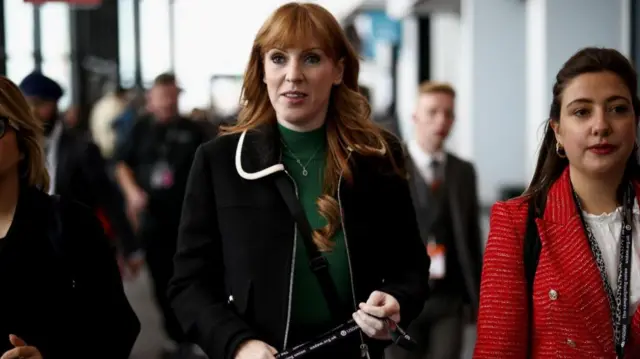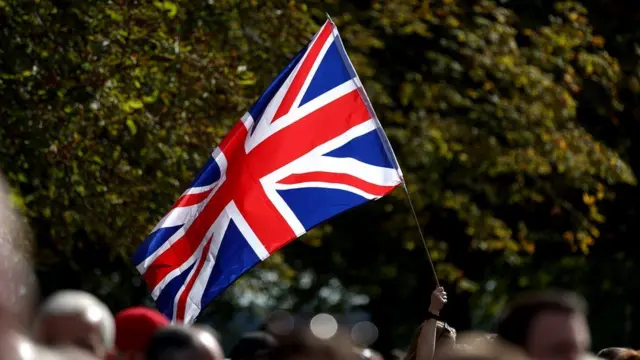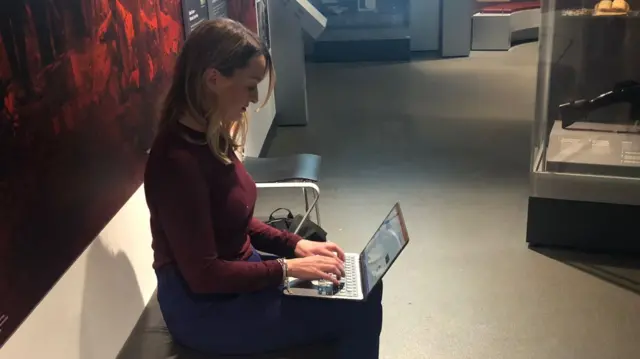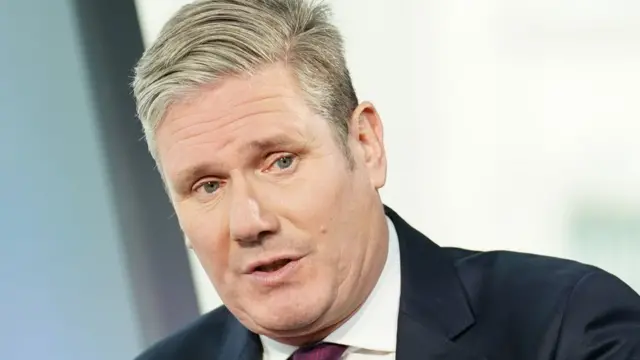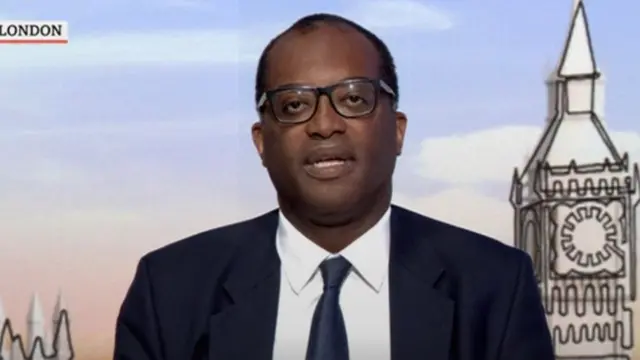What did we learn from today's big interviews?published at 12:15 BST 25 September 2022
We'll shortly be pausing our live political coverage, but first a recap on what's emerged from those two big interviews on the BBC this morning.
- Labour leader Sir Keir Starmer said the party would reverse the government's cut to the top rate of income tax, telling the BBC's Sunday with Laura Kuenssberg the move was "the wrong choice" during a cost-of-living crisis
- Sir Keir also said was feeling more optimistic about his electoral prospects, saying "people are believing in Labour again"
- He was speaking ahead of Labour's party conference, which has just got under way in the city of Liverpool
- Meanwhile Chancellor Kwasi Kwarteng defended his decision to cut billions in taxes, telling the BBC that there was "more to come" but that he was committed to net debt to GDP falling over time
- While Kwarteng said Britain couldn't borrow huge amounts forever, he said the UK was dealing with the massive shocks of Covid and the war in Ukraine
Today's live coverage was brought to you by Matt Davis, Rob Corp and Nathan Williams.


